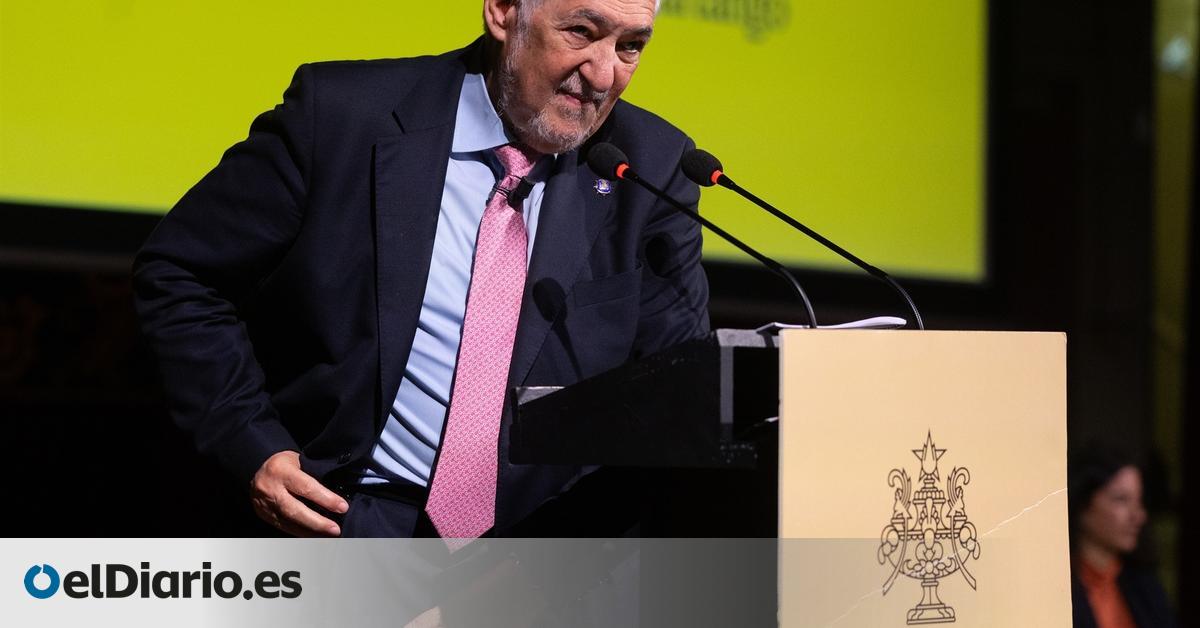
With permission of recordings, leaks, alleged reports of the UCO, crimes of fiscal fraud and a hyperventilated public conversation that crosses the limits of the acceptable between political adversaries, the law of amnesty will return in the next few hours to the skirts of the news and the covers of the newspapers. When a year of their promulgation is completed, the magistrates of the Constitutional Court (TC) will have at noon this Monday at their disposal the presentation of the sentence on the rule that has drafted its vice president, immaculate Montalbán, with the advice of two lawyers of the guarantee body.
Five months of work have resulted in a text that, as ElDiario.es has been confirmed, partially estimates the resource that the PP presented last September, but endorses the bulk of the norm by fully declared more than 95% of its content. The text that the magistrates will begin to discuss that the amnesty law does not violate the principle of equality or the separation of powers, and does not transfer the limits of the Magna Carta. Thus it appears in the draft that now submits to the deliberation of the magistrates of the Court of Guarantees.
It is annulled, yes, the temporary validity provided for in article 1 for continued crimes, that is, those that within the framework of the consultations held in Catalonia on November 9, 2014 and October 1, 2017 would have been made beyond the date on which the proposal of law was recorded in the Congress of Deputies. The decision lacks practical consequences because none of those condemned for their participation in the independence process has subsequently committed any crime.
The presentation extends, on the other hand, the objective scope of the law when considering not only the crimes promoted by the independentists who are listed in the text, but also those of those who could have committed by the servers of the law at that time against or to stop the procés. The TC considers amnestiable, without distinction of who committed them, as established by the legislator, all crimes listed for both, were supporters or detractors of the procés.
Likewise, Montalbán makes an “compliant interpretation” – a formula that means that the article in question is constitutional, but must be interpreted according to guidelines issued by the Court – to article 13 on the procedure in the accounting field and the application of the amnesty by the Constitutional Court. The observation is so that in cases that are in the first instance or appeal phase, in addition to the competent bodies of said Court, prior hearing of the Fiscal Ministry and the public sector entities harmed, others affected beyond public entities.
Political motivations are not subject to examination
The rapporteur is dismissed otherwise the argumentation of the PP on the lack of constitutional lace of the amnesty and rejects that the norm violates the principle of equality or separation of powers. Likewise, it is avoided, according to jurisprudence, to enter the political motivations that, according to the appeal of the popular, led to the drafting of the law and that were no other than favoring the investiture of Pedro Sánchez. Immaculate Montalbán understands that the political objectives used by the right are not subject to examination of the magistrates, whose work is to ensure strictly for the constitutional lace. The rapporteur defends, according to TC sources, that the law does not pursue a different question from the one established in its wide preamble.
As of Monday, the constitutional magistrates will have three weeks to study the presentation until it is debated in a plenary that will be held the last week of June, although the deliberations on it will begin on June 10. Precisely that day, the requests of the PP and the Senate -identics to which the three conservative magistrates César Tolosa, Concepción Espejel and Enrique Arnaldo were rejected and Enrique Arnaldo and were rejected by the President, Cándido Count Pumpido through an internal procedure – to paralyze the debate on the amnesty until the Court of Justice of the European Union (TJUE) is pronounced. An instance the latter to which the Supreme and other courts have transferred their doubts about the violation of community law of the amnesty law in what the progressive sector of the Constitutional Court understands as a new maneuver with which to delay the application of the norm.
The same sources maintain from one side that the debate on the right of the union is foreign to the appeal of unconstitutionality presented by the PP and another, that the request of the Senate is extemporaneous, since it recorded allegations at the appropriate procedural moment. It will be the immaculate Montalbán who on the 10th defend, after exposure on the presentation, a resolution contrary to paths. And identical luck will run the request of the PP so that Count Pumpido refrains in the vote of the sentence with the argument that his wife, Clara Martínez de Careaga, participated in the elaboration of a report on the law in his stage of vowel of the General Council of the Judiciary (CGPJ). The Constitutional Court has already rejected, by 7 votes to 1, in addition to “for its manifest lack of foundation”, the challenge of its president also presented by the PP in October 2024.
The Guarantees Organ has since January 2023 with a progressive majority, which happened to a previous predominance. In both cases the proportion was seven votes to five, but from the opposite sign. For the deliberations on the Amnesty Law, the Constitutional Court will remain in any case constituted by only 10 magistrates, instead of the 12 that make up the plenary, after the resignation of the former magistrate and former socialist minister of socialist justice Juan Carlos Campo and the challenge of the conservative José Mario Macías. The first departed from the deliberation after having ruled that an amnesty would be unconstitutional when he promoted from the government the indults to the leaders of the procés and the second was challenged by his forceful pronouncements against the legality of forgiveness to the leaders of the procés when he was a member of the CGPJ.
The way until they reach the presentation that magistrates will receive today has not been easy or exempt from controversy. In fact, its president, Cándido Conde Pumpido, denounced that the guarantor of the Magna Carta faced “very powerful forces or currents of opinion, which represent a political, media, economic or other political power that is interested in maintaining a norm or in which another is declared unconstitutional because it affects their interests in one way or another”. A confrontation that, in his opinion, could only be overcome with an institutional respect that, “unfortunately we miss too many times.” Everything indicates that this will continue when the sentence is known because the right will not lose occasion to question, as it has done so far, the work of the court, its president or its composition as if all this is not also objecting of the Constitution or the democratic system.
The sentence will undoubtedly mark a before and after in the history of the Constitutional for its political and social importance, as also marked by the judgment of the statute of June 2010, a decision that fell as a slab between the political forces and civil society of Catalonia and triggered the greatest political and institutional conflict that Spain has lived in democracy.
Source: www.eldiario.es

